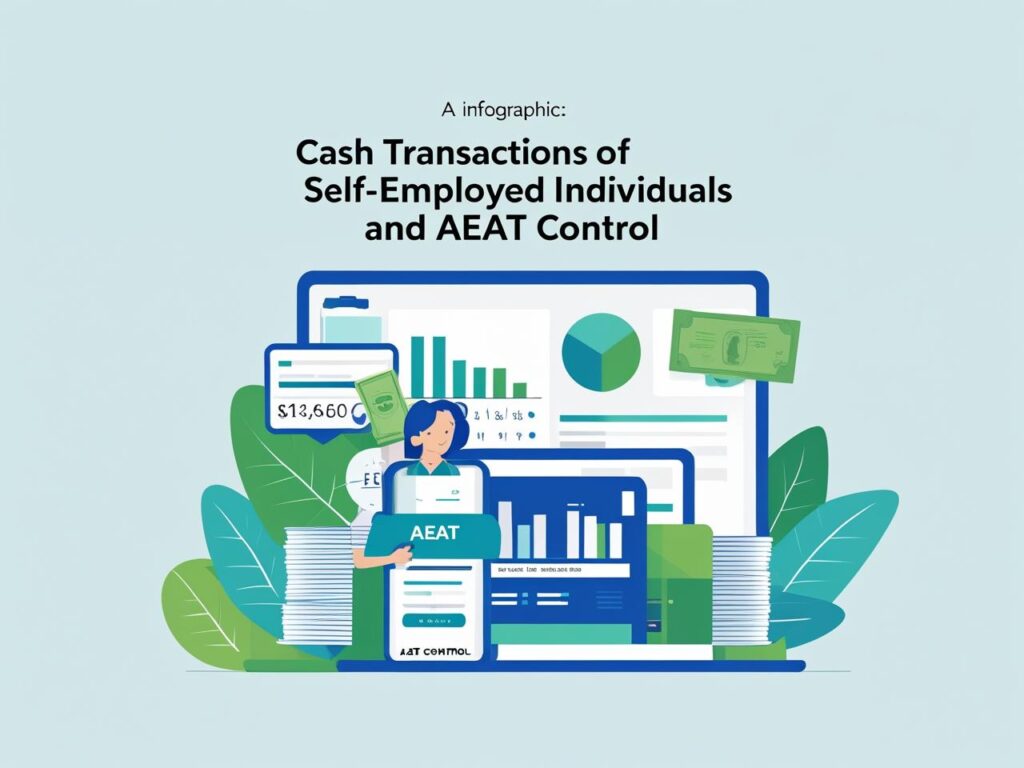How the Spanish Tax Agency Tracks the Bank and Cash Transactions of Self-Employed Workers
If you’re self-employed in Spain, it’s essential to understand that your financial activity—both in bank accounts and in cash—is increasingly under the microscope of the Tax Agency (Agencia Tributaria). With new tools and reporting obligations, Hacienda is tightening control over all types of income and expenditures, aiming to combat tax evasion and ensure full transparency.
1. Bank Account Monitoring
The Tax Agency receives detailed information from Spanish banks regarding:
- Incoming and outgoing transactions.
- Account balances.
- Patterns that may indicate undeclared income.
This data is cross-referenced with the taxpayer’s submitted returns. If there are inconsistencies or suspicious cash flows not justified by invoices or declared income, the taxpayer could be subject to inspection or penalties.
2. Cash Transactions Are Not Invisible
A common misconception is that cash operations are “off the radar.” But in reality:
- Frequent or high-value cash deposits raise red flags.
- If those amounts aren’t reflected in accounting records or declared income, an investigation can follow.
- Businesses that handle large volumes of cash (e.g., hospitality, hair salons, retail) are particularly scrutinized.
It’s important to remember that even small discrepancies can trigger automated alerts within Hacienda’s systems.
3. Cross-Checks with Other Sources
Apart from banks, Hacienda can:
- Access data from card payments, POS terminals, and mobile payment platforms.
- Compare declared earnings with lifestyle, real estate purchases, and other financial commitments.
- Verify cash movements through third-party reports (e.g., suppliers, customers, other public agencies).
4. Legal Obligations and Penalties
Failing to report income or maintain accurate records can result in:
- Fines of up to 150% of the unpaid tax.
- Interest surcharges.
- In severe cases, criminal charges.
Moreover, businesses are legally required to retain invoices and justify all cash movements for a minimum of 4 years.
5. How to Protect Yourself
To avoid problems with Hacienda:
- Always declare all income—even cash.
- Maintain updated and accurate accounting records.
- Avoid mixing personal and business accounts.
- Consider using accounting software that tracks all cash and bank movements in real time.
As tax monitoring becomes more digital and automated, the margin for error or omission continues to shrink. The best strategy is always full transparency and professional accounting.
Thank you for reading this post, if you think we have been able to help you or if you still have any questions, you can always contact me via WhattsApp (+49 1520 8381499) or e-mail (erica@taxandlawspain.com).
Tags: Spain Tax Agency, Self-Employed Spain, Cash Control, Tax Inspection



